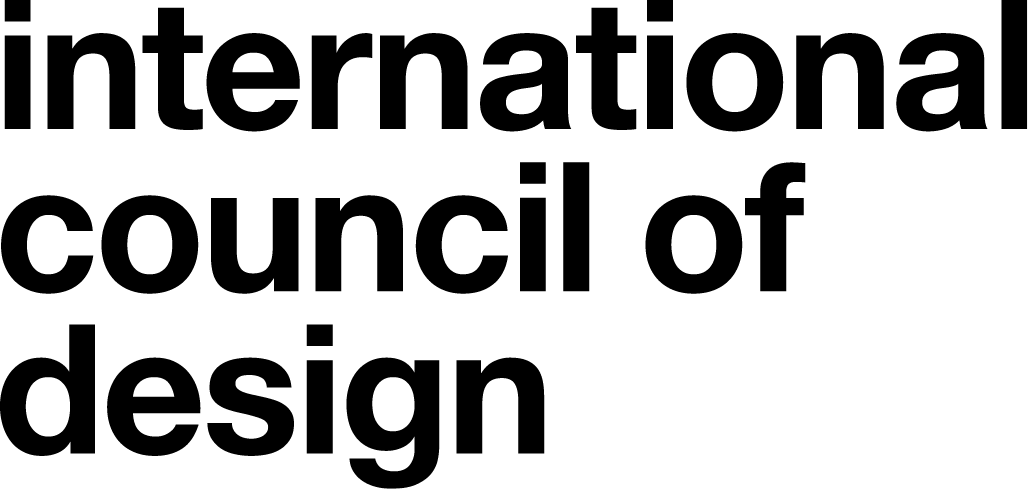
 | view in browser | |
|
newsletter bi-monthly bulletin of the International Council of Design |
March 2021 | |||||||||
01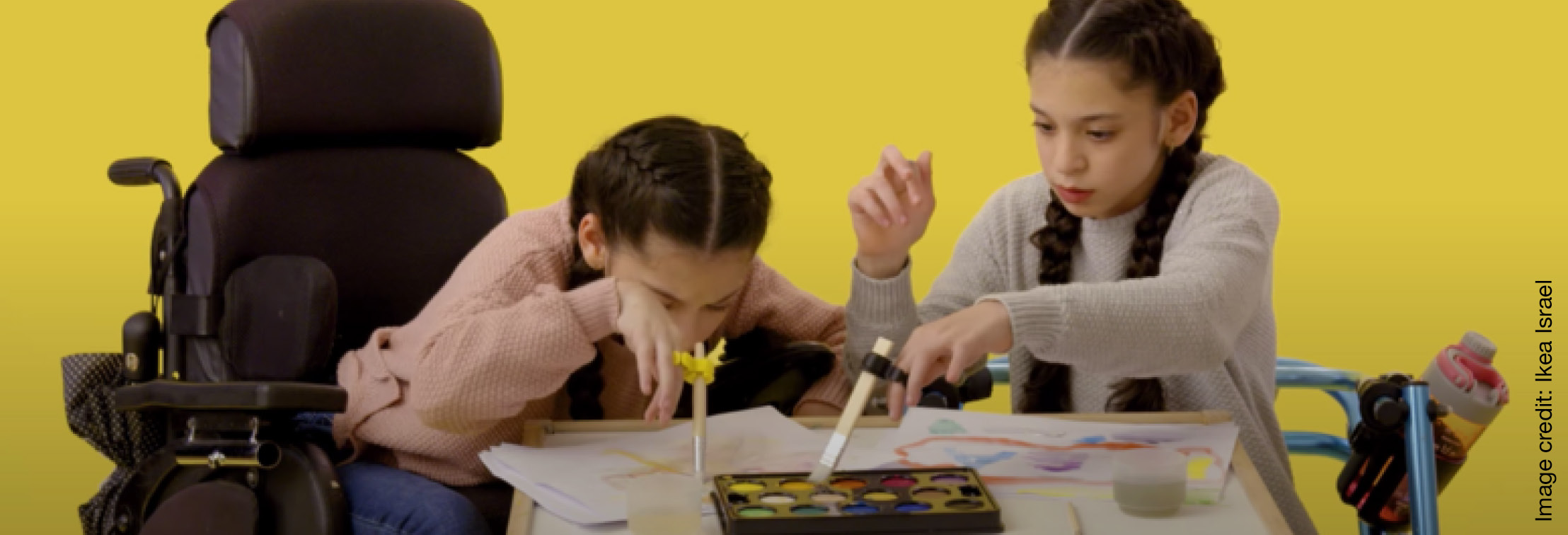
Designing for accessA designer’s professional responsibility to humanity is paramount. Given the interdependent complexities of the world we live in today, this feature examines the importance of accounting for all the ways people interact and relate to their built environment as core to the professional designer’s ethos and the design methodology. We address the ways in which designers control and deny access across a range of contexts, and outline new models for access, inclusivity and collective design. Citing one of the key thinkers for social justice in design, Sasha Costanza-Chock, we too ask, What if designers built a better world, a world where many worlds fit?
|
02![Communication Design [journal] Communication Design [journal]](http://dash.theicod.org/dashD/31/img/CDj.jpg)
ResourcesThis extended and final volume (to date) of Communication Design [journal] Vol 5 (1-2) May-November positions research and education in “a time for transformation”. Articles, visual essays and reviews present alternative ways to both teach and present design research, collectively deepening our thinking on the question: how can design education develop relevant curricula to ensure we’re meeting the needs of the next generation of designers? By mapping key themes such as social and political interaction, analogue and digital technologies, decolonising design, and gender and cultural identity, a broader design agenda that centers on the importance of teaching and learning is proposed. |
|||||||||
03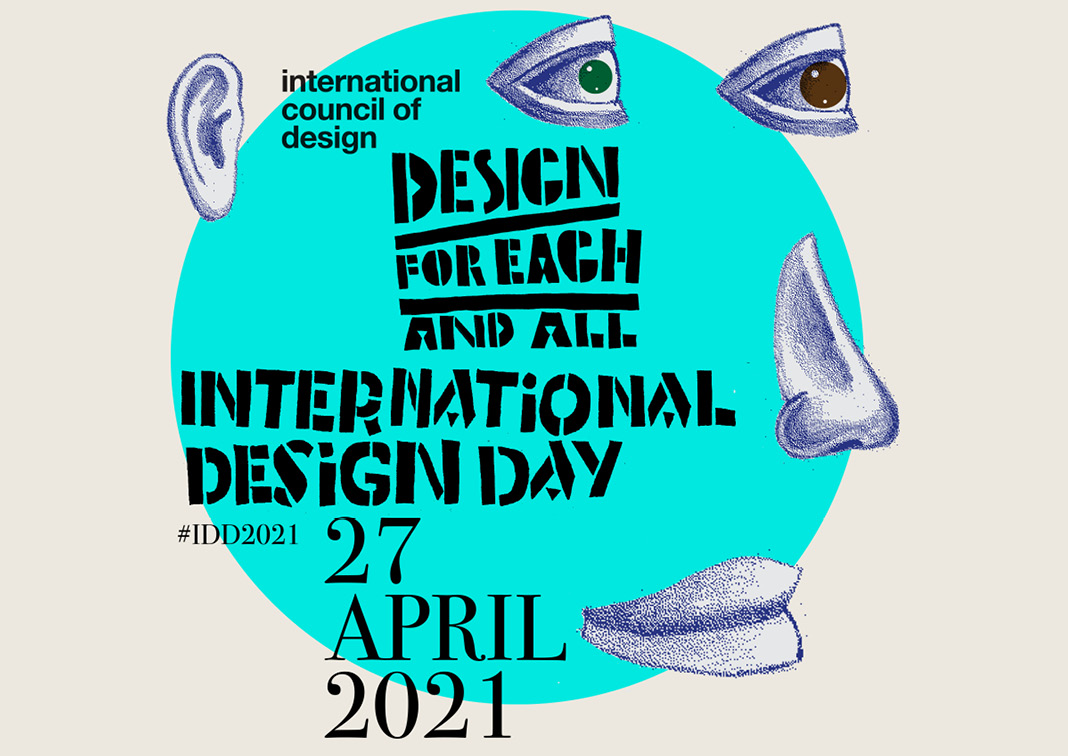
International Design DayThe Council invites you to participate in this year’s celebration of International Design Day, taking place on 27 April 2021. This year’s theme is ‘Design for Each and All’. The collective human family is made up of many different, intersecting types of people. How ‘each and all’ humans encounter the designed world depends on varying degrees of equitable access to certain material realities, spaces and experiences. We encourage our Members and other design organisations to lead digital events covering topics related to this theme such as diversity in design teams and how that improves outcomes, accessibility in design, how design controls access to services and/or spaces and more. Read more |
04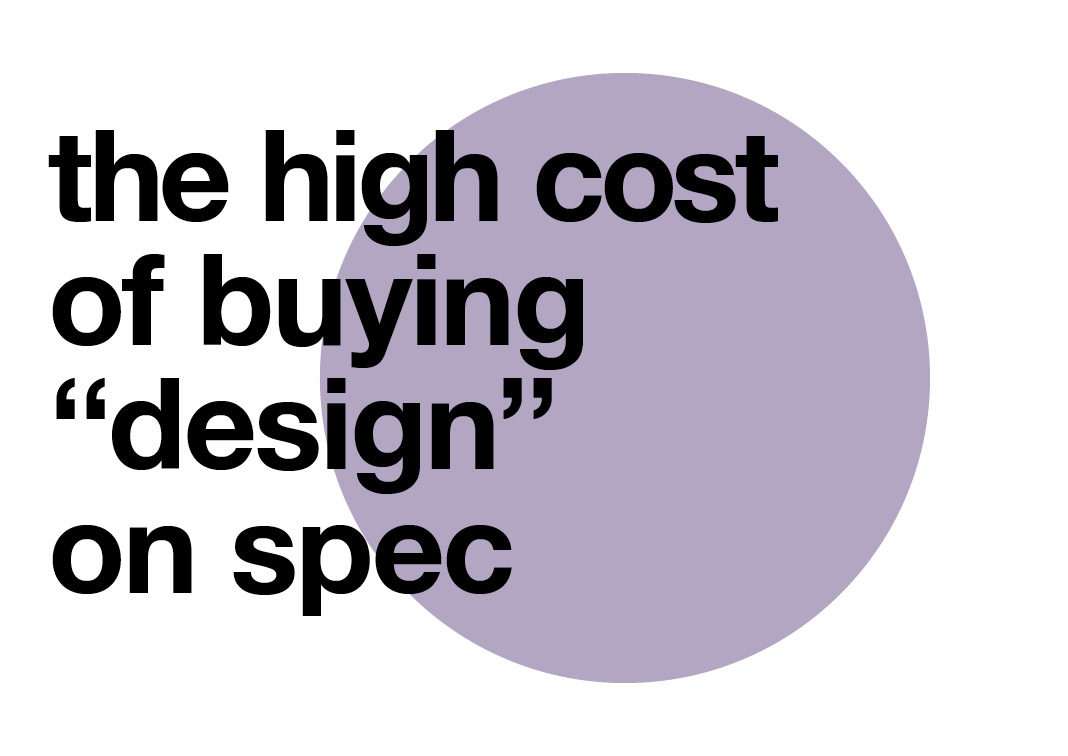
Editorial'Spec practice' is in fact speculative for both parties involved in the transaction. Many design clients do not understand what they are paying for. Because most designing ends up in the creation of some concrete design—an object, a layout, a logo, an environment, etc.—it is easier to think of design as an end product, rather than as a professional service. While it might be tempting to try 'spreading the risk' by soliciting multiple designers, Spec practices expose the client to the very real risk that they will receive poor quality work and potentially subjected to legal issues stemming from IP infringement.
|
05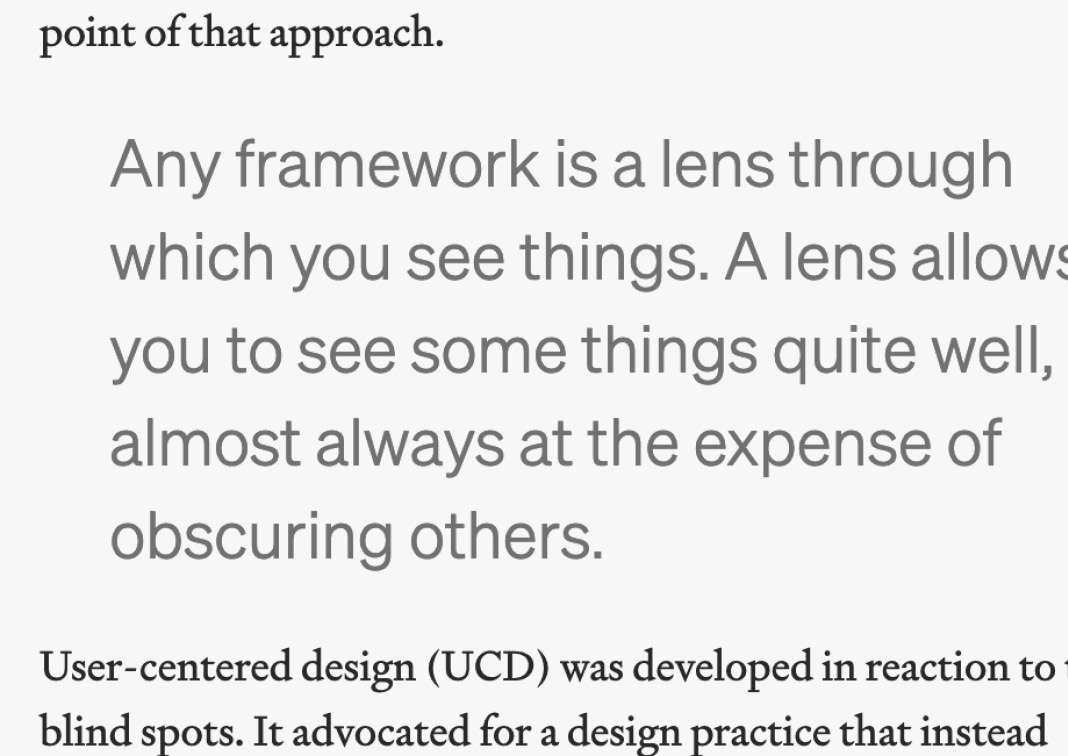
DesigningAn analysis of the framework of User-Centered Design (UCD) and the blind spots it produces. The author argues that "UCD has a tendency to obscure the experiences of other participants in the systems we design—those who aren’t end users, per se, but who interact with or are affected by the system." In trying to design out issues for the user, the author argues that these frictions get "offloaded on to others whose experiences are less visible or less privileged." The article also looks at how the determination of success 'metrics' blinds systems to other impacts that are not being measured.
|
||||||||
06
NewsThe European Commission's 'Green Deal' will start to impact legal frameworks, including initiatives that will directly affect design. With the example of consumer electronics, new legislation is already being put in place that forces manufacturers to report on the repair-ability of their products, including how easily a device can be disassembled and the availability of repair manuals and spare parts. It is widely expected that this new legal framework will push manufacturers to improve their ratings by making the designs of their products more repair-able. |
07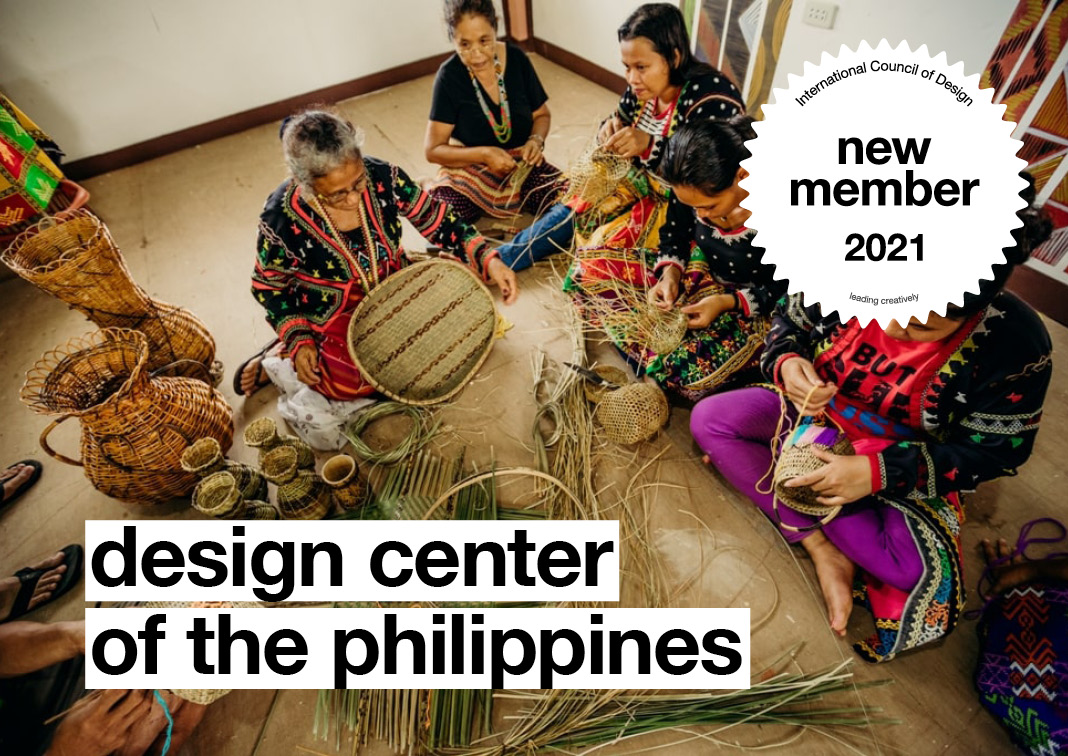
New MemberICoD is pleased to welcome new Member Design Center of the Philippines.The Design Center of the Philippines is the country’s leading agency committed to cultivating a culture that thrives on creativity, value creation, and innovation. |
08
Social impactKuwaiti-American journalist, Shihab-Eldin discusses the connections between media and power while highlighting how designers have to be aware of how they represent (and misrepresent) marginalised groups. Implicit bias is shown through underrepresentation, exclusion and discrimination. |
||||||||
09
Design for Each and AllWhen we say that “all people deserve to live in a well-designed world”, we mean everyone. Many people live with physical disabilities of every type, including those who are blind, partially sighted, deaf or hard-of-hearing. Designer, Ross Atkin has multiple projects that address these challenges in the context of the city. |
10
PodcastA podcast discussing the ethics within the fashion industry’s supply chain, with a focus on the material production of fabrics, yarns and fibres. The supply chain has grown to be more and more complex in today’s modern globalised economy that it has become increasingly difficult to follow. The current system incentivises businesses to ‘buy cheap, sell high’, with constant pressure to reduce costs, often jeopardising safe working conditions, sustainability of manufacture and local economies. |
11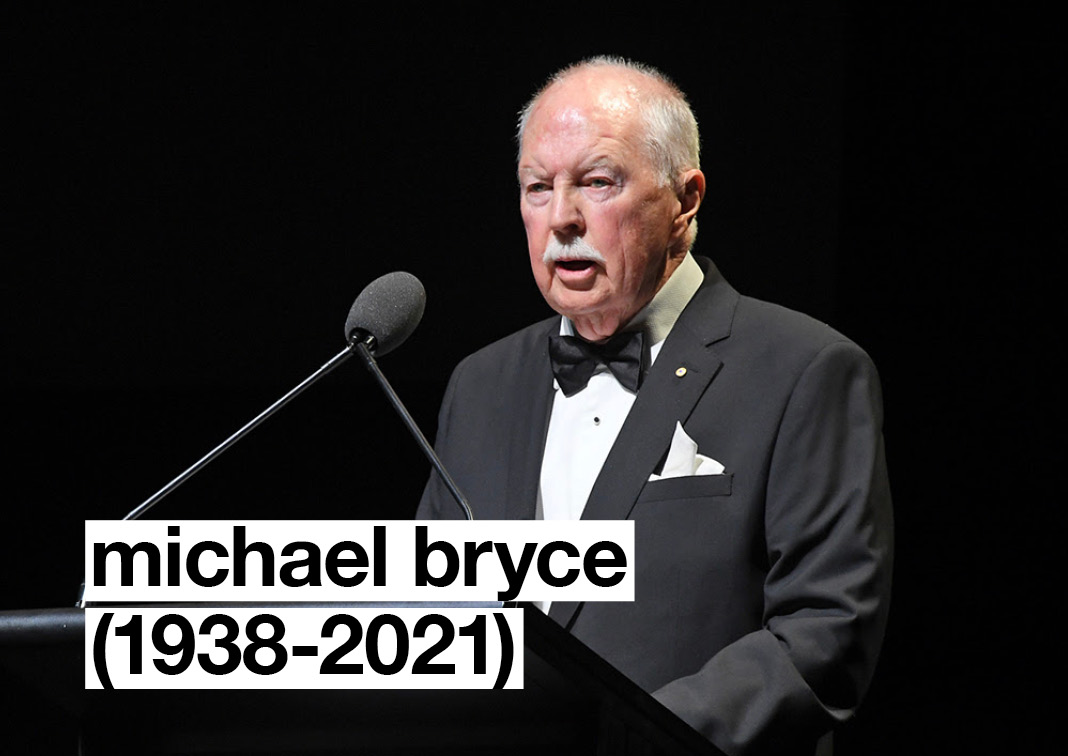
In memoriamMichael Bryce, one of Australia’s most celebrated professional designers, passed on 15 January 2021. Michael's renowned multidisciplinary career spanned graphic design, architecture, industrial design, interior and urban design. In addition to many achievements, Michael was the Principal Design Advisor of the 2000 Olympic Games in Sydney, President of the Design Institute of Australia for many years, and had recently been awarded the Australian Design Prize in 2020 in recognition of his tireless efforts to champion design in Australia.
|
||||||||
|
||||||||||
|
||||||||||
|
The International Council of Design |
ICoD Secretariat: Phone: +1 514 875 7545 Email: info@theicod.org theicod.org |
Follow ICoD: facebook | twitter | instagram To update your preferences, please click here. |